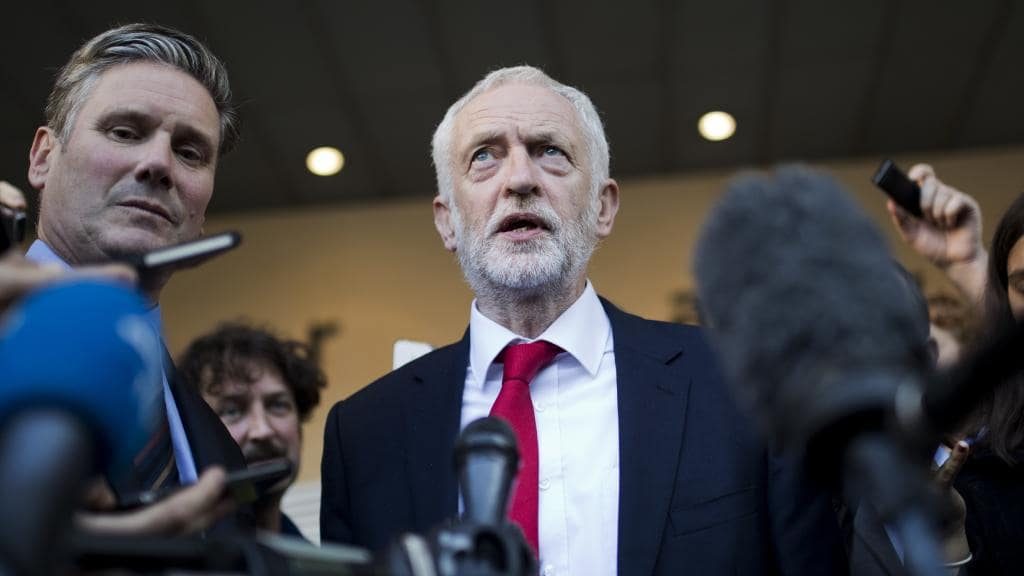IN THE MEDIA
It’s one thing to criticise, but people need to tread carefully
October 12, 2018 | Jamie Hyams

The Mercury (Hobart)
October 12, 2018 12:01am
ALLEGATIONS of anti-Semitism have been prominent in international news lately, with Jeremy Corbyn’s British Labour Party in crisis, accused even by some of his own MPs of tolerating or even practising anti-Semitism.
Further controversy arose over Corbyn’s reluctance for the party to adopt the International Holocaust Remembrance Alliance (IHRA) Working Definition of Anti-Semitism.
The IHRA consists of 31 member countries, 24 of which are European. Australia, while not a full member, is one of two liaison countries.
The working definition doesn’t just define anti-Semitism, it gives examples, including when criticism of Israel is considered anti-Semitic.
These include: denying the Jewish people their right to self-determination, for example, by claiming that the existence of a state of Israel is a racist endeavour; applying double standards by requiring of it a behaviour not expected or demanded of any other democratic nation; using the symbols and images associated with classic anti-Semitism to characterise Israel or Israelis; and drawing comparisons of contemporary Israeli policy to that of the Nazis.
This raises the question of when criticism of Israel does cross into anti-Semitism.
Of course, like any other country, it is completely legitimate to criticise the conduct or policies of Israel. On the other hand, there are clear examples where the line is crossed.
Then there are others where the line is, at the very least, given a severe nudge.
In Greg Barns’ latest anti-Israel diatribe, “Relationships transcend the divide of life in Jerusalem” (Talking Point, Mercury, September 24), Barns refers to “the events of 1948 that saw Palestinians ripped from their land and houses to make way for the Jewish state”.
He arguably seems to be suggesting Israel shouldn’t exist.
At the very least, he is blatantly rewriting history.
The UN partition plan, which divided the British Mandate of Palestine into a state for the Jews and a state for the Arabs, allocated the Jews only those areas where Jews were in the majority.
The Jews accepted the partition, but the Arabs and the surrounding Arab states rejected it. As soon as Israel declared independence, it was invaded by six surrounding Arab countries.
Had there been no war, no Arabs would have needed to leave their homes. As it was, while some were forced out by the fighting or out of military necessity, most who left did so voluntarily at the urging of their leaders to get out of the way of the invading armies, or fled in fear at untrue rumours of Jewish atrocities.
Calling Israel an apartheid state, as its harshest critics often do, also at the very least skates close to the line, given an example in the IHRA Working Definition is “claiming Israel is a racist endeavour”. It is also blatantly untrue.
All Israeli citizens have the same rights, regardless of race or religion.
Different laws for the West Bank Palestinians exist, because to apply Israeli law would be tantamount to annexation, while restrictions through methods such as checkpoints and the security barrier are due to the well-justified need to prevent terror attacks, not out of any belief in racial superiority.
Israel’s strong critics apply double standards against it, behaviour also mentioned in the Working Definition.
For example, they blame Israel for the lack of peace with the Palestinians, completely ignoring the Palestinian failure to accept three offers of statehood, or, for the past 10 years, to even negotiate in good faith.
They condemn as racist Israel’s determination to be defined as a state of the Jews, ignoring the fact that the Palestinian Authority, all Arab states and even many Asian and European states also define themselves by their majority ethnicity or religion.
They condemn any apparent Israeli restriction on free speech, ignoring, for example, the Palestinian Authority arresting its residents for mere Facebook posts.
They miss no opportunity to condemn Israel’s occupation of the West Bank and its treatment of the Palestinians there, even though Israel took the West Bank in a defensive war and has made offers to leave it.
Yet they remain silent on more brutal and less justified occupations, such as China in Tibet, Turkey in Northern Cyprus, or Russia in parts of Ukraine.
They repeatedly attack Israel for alleged human rights abuses, while ignoring the many genuine recidivist human rights abusers, whose crimes are far worse than what anyone even accuses Israel of doing, such as the 600,000 killed in Syria.
To repeat, criticism of Israel, of the same type applied to any other state, is completely legitimate.
However, those, like Greg Barns, who focus obsessively on Israel, exaggerating and misrepresenting its alleged sins and omitting all context, while ignoring far worse abuses from others, really need to take a good, long look at the Working Definition, and consider their own motivations.
Jamie Hyams is a senior policy analyst at the Australia/Israel and Jewish Affairs Council.
Tags: Anti-Zionism, Antisemitism, Israel, Palestinians, United Kingdom





